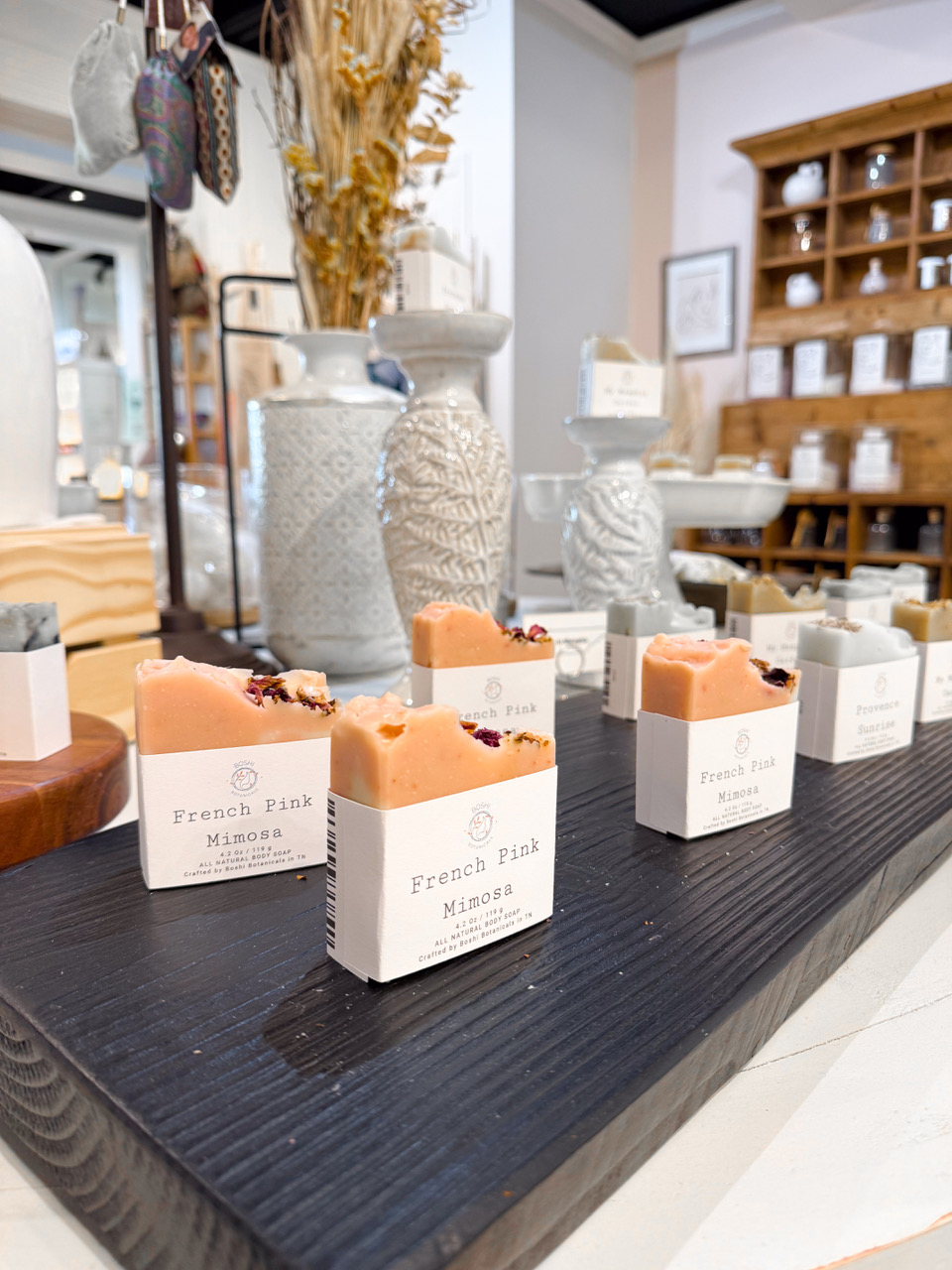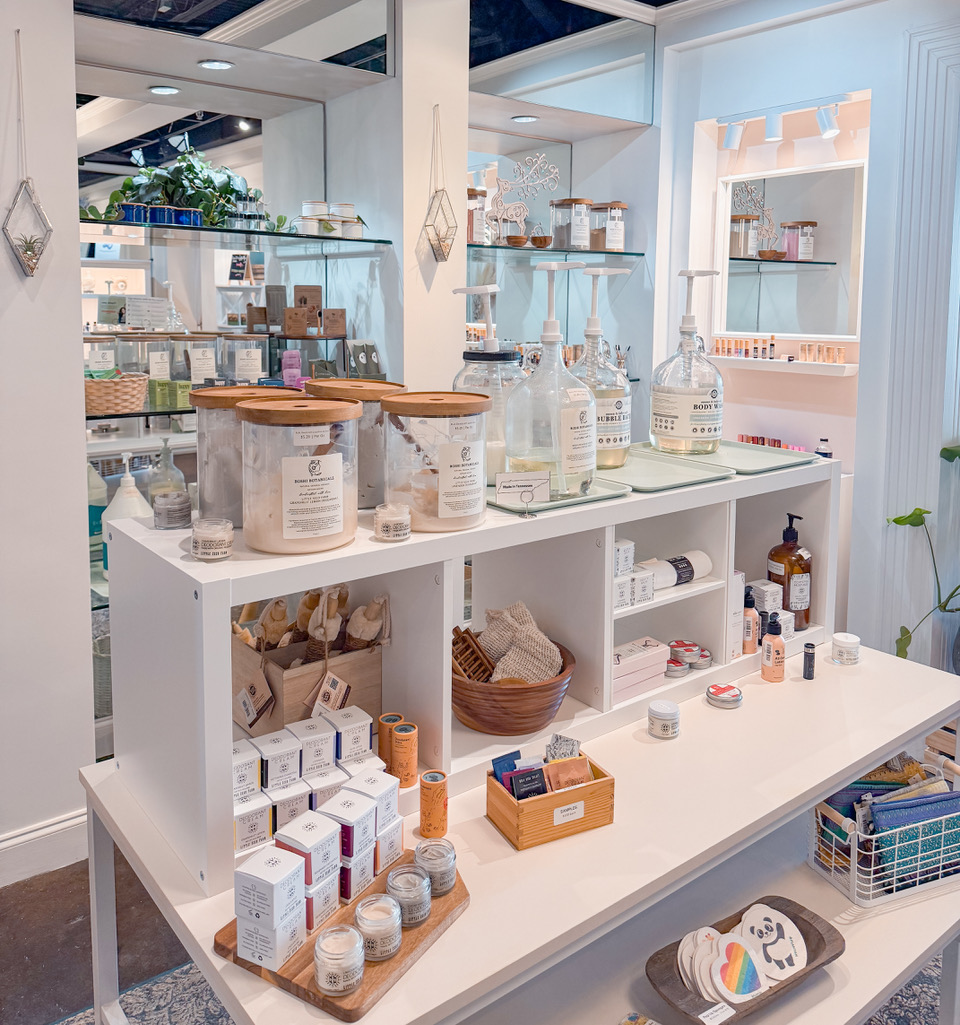When Boshi Botanicals first opened in 2024, one of the questions that owner Becky Beloin repeatedly heard was “Is Memphis ready for-zero waste?”
Boshi is the city’s first zero-waste store. Located at 3092 Poplar Avenue, Suite 16, the shop offers a number of eco-conscious products, such as refillable bathroom cleaning kits, reusable feminine pads and liners, scrap-felt polish pads and more.
From an optic standpoint, Beloin said Memphis may not appear to be a sustainable city, since it is still common for people to use plastic bags when shopping, and many restaurants still use plastic straws and cutlery, as well as styrofoam to-go containers.
Such habits may indicate the city isn’t prepared to change to a zero-waste lifestyle, but it doesn’t mean there isn’t hope. Beloin said initiatives such as Project Green Fork and Clean Memphis show that efforts are being made to increase understanding of an eco-friendly way of living.
Boshi Botanicals’ goal is to amplify the resources needed for sustainability, while also making them accessible. Beloin said customer feedback has shown that Memphians want to move towards a waste-free way of living, but there hadn’t been a place locally that could sustain it.

“We live in a society where it’s so easy to order from Amazon,” Beloin said. “You can order pick-up from Target and obviously [if you purchase from these retailers] you don’t have to remember to bring your bottles.”
Beloin’s store not only encourages customers to bring their refillable bottles and containers, they reward them for it.
The costs of zero-waste can also pose a barrier. The University of Memphis’ “2024 Poverty Fact Sheet” showed that the city’s poverty rate is 22.6 percent. Beloin noted that the standard cost of living has become increasingly expensive — with many thinking that a shift towards sustainability costing significantly more.
However, she explains, this is a misconception. Many of the items sold at Boshi are refillable and reduce costs, including as wool dryer balls, which can last three-to-five years.
“It may seem a little higher up-front, but when you actually end up breaking it down, it ends up saving you money,” Beloin said.
“There’s interest [in zero-waste],” Beloin added. “I think a lot of it is education and getting the information out that there are things that we can all do as individuals to be more sustainable, but I think the city government needs to do things that could increase sustainability as well.”
She acknowledges that individuals can take certain steps towards an eco-friendlier lifestyle, such as using reusable shopping bags. However, she said the city shares a responsibility as well. Beloin suggested that the city evaluate different aspects of non-sustainability that they’d like to eradicate, and look into passing legislation that prevents wastefulness.
“There’s a cost to everything,” Beloin said. “People may say ‘Well, the plastic bag is free’ or ‘styrofoam is free,” but it’s not. It’s built into the cost of your food and it’s also built into the cost of [an] individual’s health.”
Beloin said the Mid-South may not be known for its sustainability, but she thinks Memphis can pioneer a movement by getting rid of pollutants such as styrofoam and plastic.
